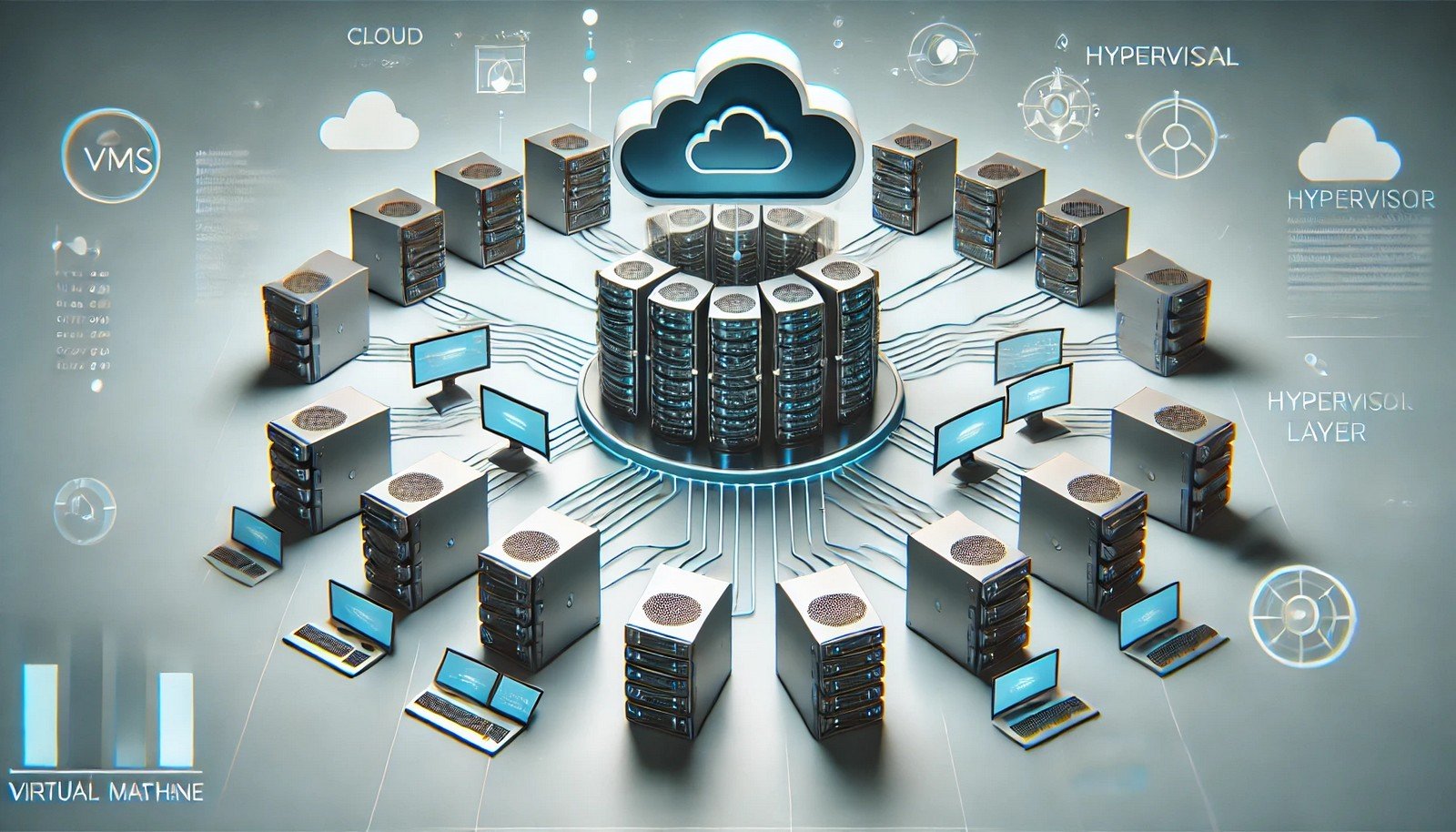Virtual Machine
 (Representational Image | Source: Dall-E)
(Representational Image | Source: Dall-E)
Quick Navigation:
- Virtual Machine Definition
- Virtual Machine Explained Easy
- Virtual Machine Origin
- Virtual Machine Etymology
- Virtual Machine Usage Trends
- Virtual Machine Usage
- Virtual Machine Examples in Context
- Virtual Machine FAQ
- Virtual Machine Related Words
Virtual Machine Definition
A virtual machine (VM) is a software emulation of a physical computer that allows you to run operating systems and applications in an isolated environment. It operates by abstracting hardware resources and running on a host system, using a hypervisor or virtualization software. Virtual machines are used for development, testing, and deploying software in isolated, scalable environments.
Virtual Machine Explained Easy
Imagine you want to play with toys in a sandbox without messing up your room. A virtual machine is like that sandbox: it creates a space where you can do anything without affecting your actual computer.
Virtual Machine Origin
Virtual machines originated in the 1960s with IBM's efforts to partition mainframes, allowing multiple users to run isolated applications simultaneously. This technology evolved into modern virtualization solutions.
Virtual Machine Etymology
The term “virtual machine” comes from the concept of creating a “virtual” (not physical) computing “machine.”
Virtual Machine Usage Trends
The use of virtual machines has surged with the growth of cloud computing and virtualization technologies. Organizations use VMs for scalable infrastructure, application testing, and secure software development.
Virtual Machine Usage
- Formal/Technical Tagging:
- Virtualization
- Cloud Computing
- IT Infrastructure - Typical Collocations:
- "virtual machine instance"
- "hosted virtual machine"
- "virtualization platform"
Virtual Machine Examples in Context
- Developers use virtual machines to test software in different operating systems.
- A virtual machine can host multiple servers on a single hardware device in data centers.
- Cloud providers offer virtual machines to customers for scalable computing needs.
Virtual Machine FAQ
- What is a virtual machine?
A virtual machine is a software-based emulation of a physical computer. - How do virtual machines work?
VMs run on a hypervisor, which manages resource allocation and virtualization of hardware. - Why are virtual machines used?
For testing, development, and isolating applications. - Can a virtual machine run any operating system?
Yes, provided the host system supports it. - What is the difference between a VM and a container?
VMs virtualize hardware, while containers virtualize the operating system. - What are the types of virtual machines?
System VMs and Process VMs. - Is a virtual machine safe to use?
Yes, it isolates the environment from the host system. - What are common hypervisors?
VMware, Hyper-V, and VirtualBox. - Can VMs be used for gaming?
Yes, but performance depends on the host hardware. - What is a VM snapshot?
A saved state of a VM to revert to later.
Virtual Machine Related Words
- Categories/Topics:
- Virtualization
- Cloud Infrastructure
- IT Operations
Did you know?
Virtual machines are pivotal in modern cloud services, enabling companies like Amazon and Microsoft to run millions of virtual servers, providing scalable and on-demand computing resources to customers worldwide.
PicDictionary.com is an online dictionary in pictures. If you have questions or suggestions, please reach out to us on WhatsApp or Twitter.Authors | Arjun Vishnu | @ArjunAndVishnu

I am Vishnu. I like AI, Linux, Single Board Computers, and Cloud Computing. I create the web & video content, and I also write for popular websites.
My younger brother, Arjun handles image & video editing. Together, we run a YouTube Channel that's focused on reviewing gadgets and explaining technology.



Comments powered by CComment